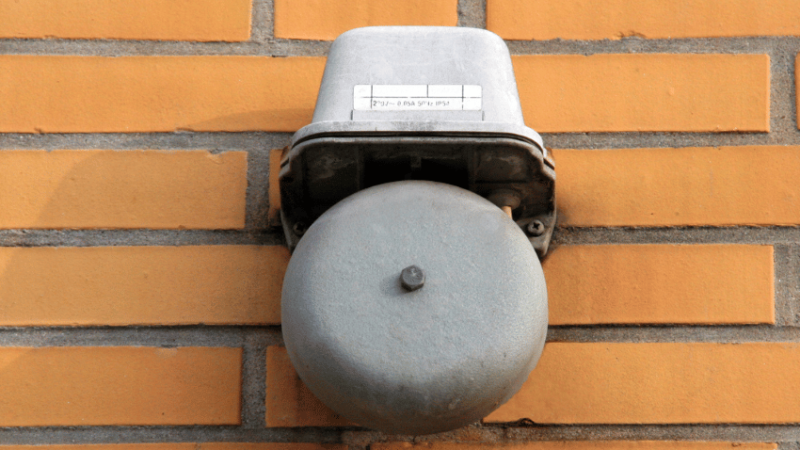Ofsted jobs – Who are the regulator’s inspectors actually working for?

Adrian Lyons posits that the sense of alienation many feel towards Ofsted may have something to do with its current focus on serving the will of the Chief Inspector

- by Adrian Lyons
- Education consultant and former HMI Visit website

Have you ever used the terms ‘they’ or ‘them’ in relation to Ofsted?
I was directly employed by Ofsted for over 16 years. Before that, as a teacher, I’d often refer to Ofsted as either ‘them’ or ‘they’. Afterwards, as a teacher trainer leading a PGCE course that was among the first ITT providers to be inspected by the regulator back in 2017, I again referred to Ofsted as ‘they’ or ‘them’.
Later, I was given contracts by a small company carrying out inspections on behalf of Ofsted, in which the directors of the company referred to Ofsted as ‘they’ or ‘them’. One of said directors used to confuse us by referring to the then HMCI, David Bell, as ‘Whitechapel Man’ (there having once been a famous foundry in Whitechapel that manufactured bells).
Hazy knowledge
After becoming one of Her Majesty’s Inspectors of Education in 2005, I found myself directly employed by Ofsted itself. Yet after a few years, I came to realise how even then, my colleagues and I would routinely refer to the organisation we worked for as ‘they’ or ‘them’.
It’s interesting to think about this in relation to the huge impact Ofsted has on schools and teachers, and the often hazy knowledge and understanding that parents, teachers and even politicians have of the regulator.
Ofsted is formally a ‘non-ministerial government department’. What that means is that its employees are civil servants. Her Majesty’s Chief Inspector (HMCI) is ultimately in charge, with all employees of the department required to either implement the policies and desires of the HMCI of the day, or leave.
Ofsted isn’t a collective of professional experts. It’s an organisation that exists to implement the policies set by HMCI.
Specific inspections
There are two types of Ofsted school inspectors. Most are Ofsted Inspectors (OIs) – individuals who have qualified teacher status and are contracted to perform specific inspections. Within this group are ‘serving practitioners’ and ‘non-serving practitioners’.
Serving practitioners are employed in leadership roles at schools, and therefore enjoy the advantage of possessing very up-to-date knowledge and expertise. However, since they’re regularly needed in schools, they will tend to gain limited experience of inspection, and can sometimes run the risk of comparing policies and practices at other schools with their own.
Non-serving practitioners are typically self-employed former school leaders – a number of whom will often be carrying out inspection work primarily to maintain their Ofsted inspector badge, which in turn lends credibility to their consultancy work (which usually pays better than working for Ofsted).
Directly employed
Ofsted’s directly employed inspectors, on the other hand, are HMIs. When I became an HMI, my fellow recruits and I thought we’d reached the pinnacle of our careers, as the role was seen as one of great privilege. Part of the job involved leading the inspection of schools, but there was also a wide range of other activities. These might include monitoring LAs and working with other agencies, supporting schools judged as Inadequate to help them to improve, reviewing subjects, working alongside subject associations and more besides.
The mentoring for new HMI at the time was genuinely first class. Most of your first year would be spent training and learning about different aspects of the organisation’s work.
Sadly, however, the role since then has become very different. Now, the focus is mainly on delivering large volumes of inspections and quality assuring the reports of OIs. Consequently, the nature of the HMI workforce has changed. HMIs still receive plenty of inspection experience, but with the role carrying a salary of £75,000 a year, many now treat it as more of a stepping stone to the much more lucrative appointments available within MATs.
Ofsted was originally created to give parents dispassionate information about the quality of education in different schools. Yet the manner in which it was originally set up has since forced the regulator into serving a different purpose – that of enabling a series of different HMCIs to reimagine the purposes of school inspection based on what they personally define as ‘quality of education’.
Adrian Lyons (@AdrianLyonsFRSA) was one of Her Majesty’s Inspectors between 2005 and 2021. He now works with a number of MATs, teacher training providers and local authorities to support education. adrianlyonsconsulting.com







